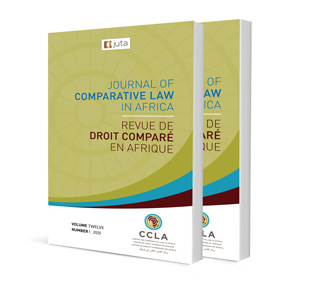The protection of disability rights under the Nigerian national framework

The protection of disability rights under the Nigerian national framework
Authors: Barakat A Raji, Israel A Adeniyi, Dauda A Ariyoosu, Solomon O Afolabi, Ridwan O Olagunju-Ibrahim, John Ogedengbe Imam A Ahmed
ISSN: 2521-2605
Affiliations: Associate Professor, Department of Jurisprudence and International Law, University of Ilorin, Nigeria; Nigerian Law School, Lagos; Associate Professor, Department of Business Law, University of Ilorin, Nigeria; Associate Professor, Department of Private and Property Law, University of Ilorin, Nigeria; Reader, Department of Islamic Law, University of Ilorin, Nigeria; Lecturer II, Department of Jurisprudence and International Law, University of Ilorin, Nigeria; Lecturer II, Department of Jurisprudence and International Law, University of Ilorin, Nigeria
Source: Journal of Comparative Law in Africa, Volume 12 Issue 2, p. 75 – 104
https://doi.org/10.47348/JCLA/v12/i2a3
Abstract
There were various reports and studies shown in 2021 indicating that the population of persons living with disabilities in Nigeria has exceeded 32 million. Generally speaking, the issues surrounding disability conditions and welfare are usually addressed as matters of welfare and charity. This attitude has precipitated the continued social exclusion and marginalisation of persons with disabilities in Nigeria. Nigeria has ratified the United Nations Convention on the Rights of Persons with Disabilities and its Optional Code. Another milestone in the country’s efforts to promote disability inclusion and achieve sustainable improvement in the conditions of persons with disabilities was reached in January 2019, when it signed into law the Discrimination against Persons with Disabilities (Prohibition) Act. Despite the passage of these laws, people with disabilities continue to face discrimination, insecurity, violation of rights, stigmatisation, and lack of access to basic amenities daily. Silhouetted against this backdrop, this paper examines the extent of the protection of disability rights under the Nigerian legal regime. This paper employs a doctrinal and qualitative methodology of legal research in which relevant primary and secondary sources of legal materials are subjected to descriptive and content analysis. The paper then concludes with recommendations on how to achieve effective protection of disability rights in Nigeria.